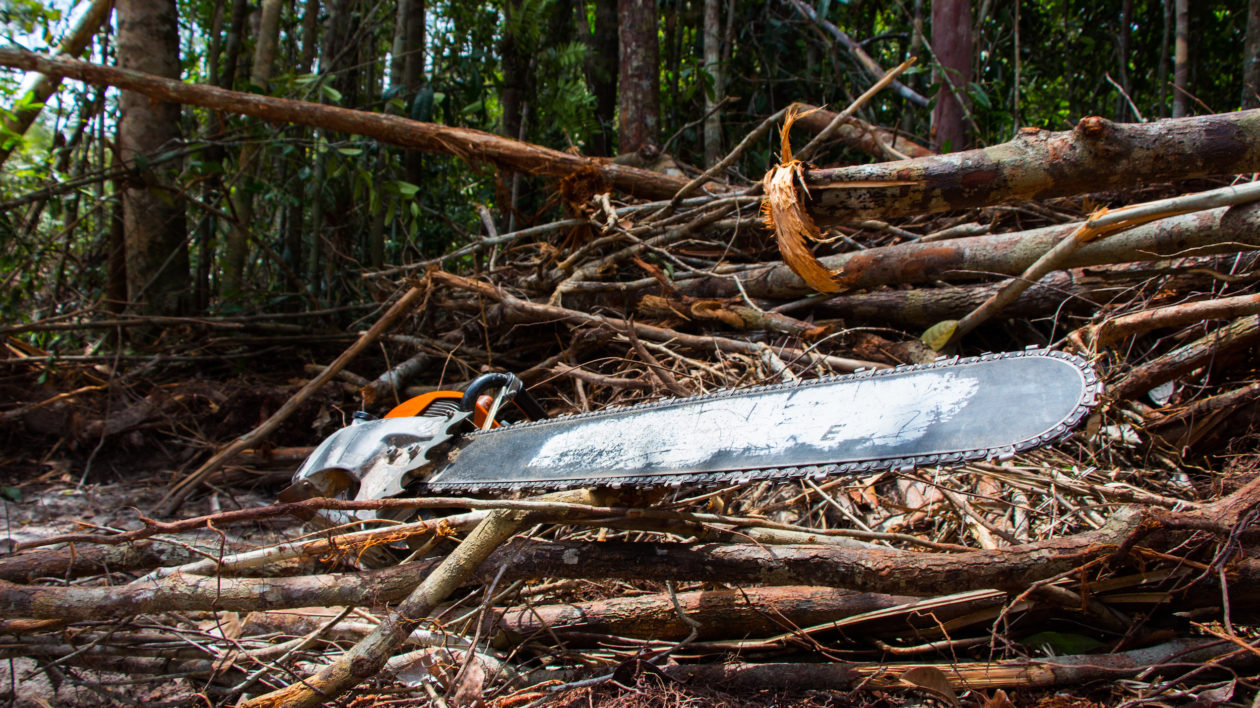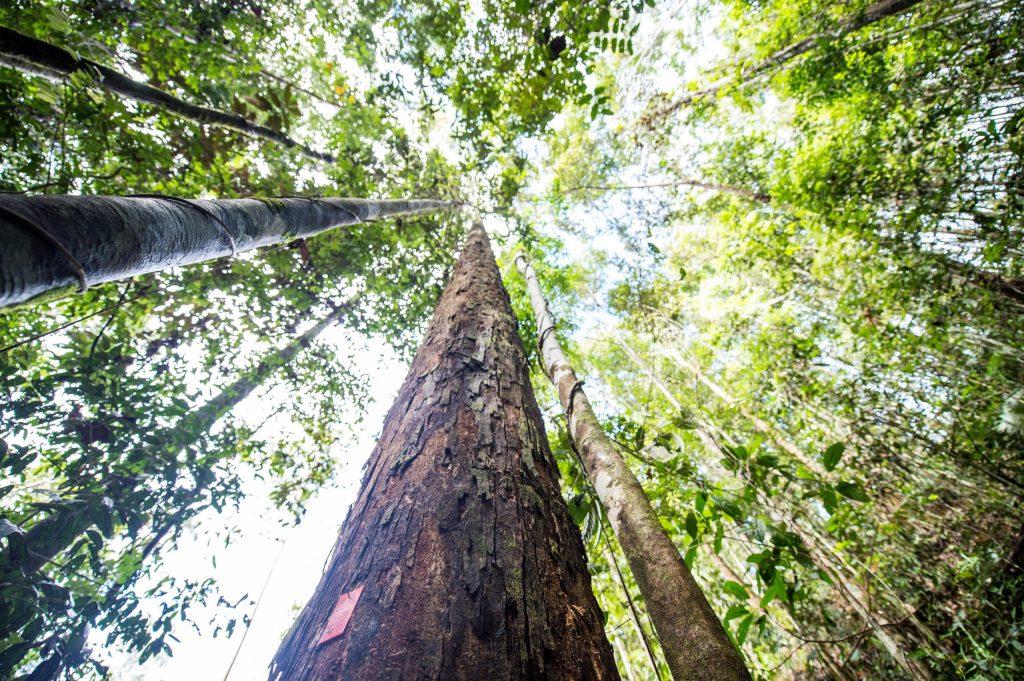One-third of Indonesian Borneo’s remaining forests are leased to logging companies for timber production. A new study finds that, counterintuitively, these forests experience a higher rate of overall forest loss after logging operations cease. Protecting these logging concessions could be a valuable tool for biodiversity conservation.
The Gist
Using data from Global Forest Change, the researchers evaluated what happens to the forests after logging stops in concessions in Indonesia’s North and East Kalimantan provinces. Their results were published in Biological Conservation.
“We found that forest loss increased in all concessions since 2010, but it was much higher for concessions that were not active,” says Zuzana Burivalova, a tropical forest ecologist at the University of Wisconsin Madison. She started this research during a NatureNet Science Fellowship with The Nature Conservancy and Princeton University.
Concessions that are smaller and at higher elevations were more likely to be inactive. The researchers also used data on orangutan and Sunda clouded leopard habitat to determine which concessions, if protected, would hold the most value for biodiversity conservation.
The Big Picture
Borneo’s forests are one of the most biodiverse ecosystems on Earth. Yet the island also has one of the highest rates of deforestation in the world, losing more than 30 percent of its forest cover between 1973 and 2010. The Indonesian government allocates forest resources to selective timber extraction, and as of 2010 these logging concessions made up 17 percent of all land and 30 percent of Indonesian Borneo’s remaining natural forests.
Selective logging practices target only large trees of the most profitable species. While their removal does cause some biodiversity loss, research shows that it causes far less than other land-use practices, like converting forest to oil palm or acacia plantations.
Indonesia’s logging industry has declined in recent decades, as the demand for profitable monoculture crops, like oil palm, increases. Many concessions are inactive, and the resulting vacancy may leave forests vulnerable to illegal deforestation and degradation from both small-scale individual and commercial operations.

The Takeaway
Worldwide, the tropical timber industry in individual countries follows a pattern of growth and inactivity; logging continues until resources are depleted, after which production declines. With so little pristine tropical forest left, the fate of inactive logging concessions is critical for tropical biodiversity conservation.
“We also quantified the risk of future forest loss, and what was really interesting were those concessions where there was an overlap of a high risk of loss and high value for biodiversity,” says Burivalova. “These places are an incredible opportunity for conservation, because even though these forests have been selectively logged, they could retain as much as 80 or 90 percent of their biodiversity.”
While more research is needed to untangle the drivers of concession abandonment and illegal encroachment, Burivalova’s work highlights an opportunity for non-profits and the Indonesian government to protect biodiversity in partnership with local communities.
References:
Burivalova, Z., et al. (2020.) Does biodiversity benefit when the logging stops? An analysis of conservation risks and opportunities in active versus inactive logging concessions in Borneo. Biological Conservation. https://doi.org/10.1016/j.biocon.2019.108369.




I like trees and forests. Old Growth Forests are special places on this Planet.
I cannot imagine logging being beneficial anywhere. I don’t think trees should be cut anywhere or at anytime. I am interested in fund-raising for trees and forests anywhere and at anytime.